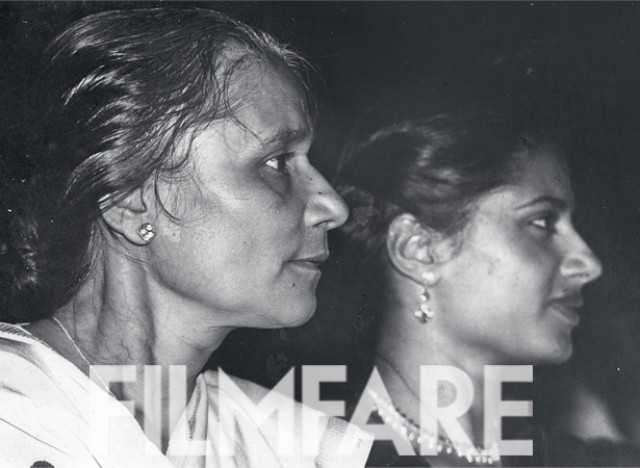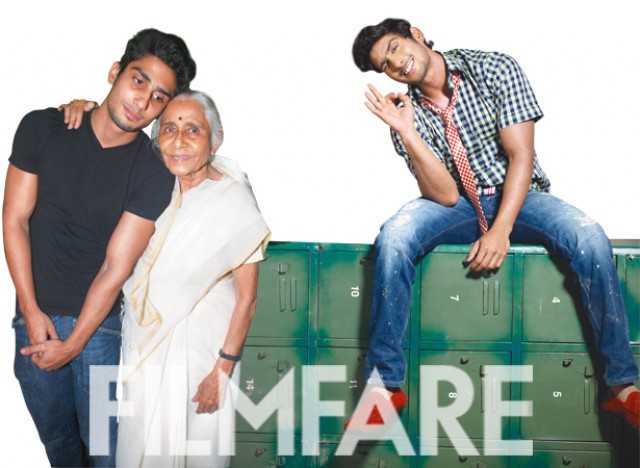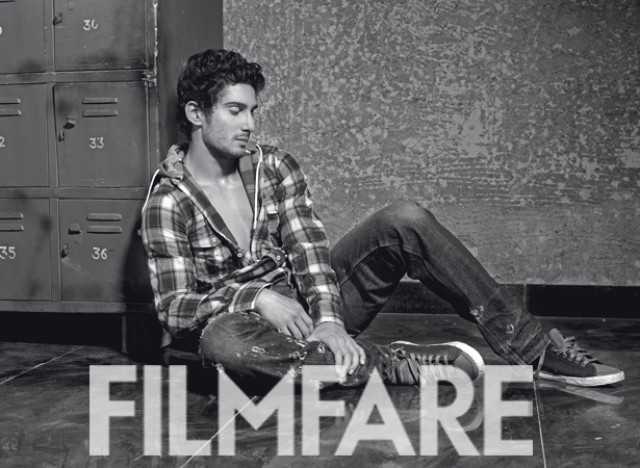I HAD just completed my nursing course and was looking for a job when I conceived Smita. I wasn’t keen to have another baby as I already had my older daughter Anita to look after. My husband (politician Shivajirao Patil) used to work for the Praja Samajwadi party. He used to send me Rs 30 a month those days. But that was not assured. There were times when meals were a problem. This dilemma, I must have mentioned at some point to Smita when she was older. Then on she’d keep complaining, ‘Tula mi nako hote na (you didn’t want me)’.
Eventually, I got a job in Pune. I used to ride a bicycle to the dispensary for about five to six miles. The doctor was furious. She said, ‘Who’ll say you’re a trained nurse? How can you ride the cycle in your condition?’ Luckily I got a two-room house in the staff quarters on the hospital premises. My husband was very fond of plants and flowers. So we had lots of them, even creepers all over the roof. Our house was called veli chi kholi (home with plants).
I could only breast feed her for one month as I had to resume work. When I tried to feed her with the bottle, she’d push it away. On seeing her cry, I’d also cry. She developed a stomach infection, which kept recurring in later years. But she was a smiling baby, so I named her Smita. She must have been three-and-a-half years old when she could speak Marathi fluently. She could even speak in the Marathi code language (involves an addition of an alphabet in every word so that it’s not easily understood), which is very difficult. Our neighbour would dangle a sugary powder packet from her balcony and lure Smita to go over. She’d then ask her to speak in the code language and laugh her heart out! Another neighbour often offered pooja with Lord Ram’s picture, which had him sporting long hair. Smita would remark, ‘Tumcha Ram veda aahe (your Ram is crazy). He doesn’t plait his hair. Look how my mother plaits my hair’.
There was a music which would be played at 8 am on the radio. The minute she’d hear that she’d start crying because she knew that it was time for me to leave for duty. She’d come running and hold my legs, ‘Ma tu jao nako, mazi shala palun tak, tujha dawakahna palun tak (Ma, don’t go, break my school and break your dispensary)!
She had sawla rang (dusky complexion), big eyes and wavy hair. She loved enacting dramas with other children and often played Jijabai (Shivaji Maharaj’s mother). She also loved bringing dogs and cats home. She’d feed them with milk and biscuits. She was soft-hearted even as a child. Once, she volunteered to take tea every day for a new mother (admitted in my hospital), who was uncared for by her family for giving birth to a daughter.
I had no idea what films were all about when she joined the industry. I never visited her sets either. But once she was shooting for Bhumika at Jyoti Studio, opposite our Tardeo house. I got a call from Shyam Benegal (director) asking me to visit for a few minutes. There I learnt that she was unwilling to do the thrusts required in the song Tumhare bin jee na lage. I told Smita, ‘You’ve come into this profession on your own. So whether your role is that of a prostitute or a goddess, you have to play it with devotion’.
After I reached home, I got a call saying she’d given a perfect shot. Even after she became famous there was no change in her attitude. She used to dress like a bhikaran (a tramp). She’d wear a pair of jeans, pull on a kurta (even her father’s), Kolhapuri chappals, tie her hair into a bun and rush out. She never needed a mirror. Once she was to meet a well-known editor for an interview at a restaurant. He couldn’t recognise her. He kept waiting for ‘actress Smita Patil’, till she introduced herself. They both burst out laughing.
She never depended on help. Once she had to catch a flight to Goa to shoot for Bhumika. That day my maid was absent. Quickly, she ran into the kitchen and washed all the utensils. She never depended on a driver; she had no issues washing her car and driving away.

A file picture of Vidyatai with daughter Smita Patil
Once when Amitabh Bachchan was convalescing (after his Coolie accident), my husband and I had gone to pay him a visit. He revealed, ‘We’d eat in our room during lunch break. But Smita would call everyone, from the spot boy to the clapper boy, and eat with them’. She was delighted to become a mother. She was very keen to breastfeed Prateik. When she developed 104 degree fever (a week after she delivered), she’d put ice packs on her body and then feed him. She watched as I bathed Prateik, because she wanted to do it herself.
She loved mogras. There would be lots of them in her car. She’d sing the abhang Mogra phoolla (sung by Lata Mangeshkar and written by Sant Dyaneshwar) for Prateik during the little time she spent with him. She feared being taken to hospital. She had to be taken forcibly. She slipped into a coma on the way. She had a premonition that she wouldn’t live long. She had shared this with Manya (her younger sister). She had also told Mahesh Bhatt that the life line on her palm was very short. She died unfulfilled.
Years after her death, we met a lady whose husband (a clapper boy) she had helped. She recalled, ‘Smitaji emptied her purse and gave my husband money to get a tin roof so that my children would be protected in the monsoon’. We have started The Smita Patil Public School in her memory in Shirpur, Dhulia. It was her dream that poor children be educated.

From being a drifter to a high flier, Prateik has finally arrived, courtesy grandma Vidya Patil
She holds the then and now together. Almost 25 years have passed but memories of daughter and late actor Smita Patil are still within her. She pulls out a photograph from a drawer, then she reads out an article published on her. She talks all at once, of Smita’s fondness for the rains, her love for mogras as also her thwarted dreams of being a mother. She rues the fact that Smita never appeared in her dreams. “I tell her, ‘Say something, fight with me, abuse me, but come at least once in my dream’,” shares the 84-year-old Vidya Patil.
But the most potent reminder of Smita for her is the late actor’s son Prateik. She pulls out a card given to her by Prateik on Mother’s Day. In Marathi it reads, ‘I can’t live with you, I can’t live without you’, hinting at their bitter-sweet skirmishes. Fortunately, life’s now come full circle for her. Once asked to share reminiscences of Smita, she’s now told to give bytes about the industry’s hottest bet and her grandson Prateik – Jaane Tu… Ya Jaane Na, Dhobi Ghat and Dum Maaro Dum vindicating his talent. “I’m happy he’s found a direction in life. I know I’ll not be able to see his success but never mind!” says Vidyatai who confides it was no child’s play bringing him up…
At 60, destiny required her to be a mother once again when she was left with Smita’s souvenir, a 14-day-old Prateik in her arms (Smita Patil passed away on December 13, 1986 due to post partum complications). Setting aside her grief, she took on the challenge. “I’m no weakling. Poverty has made me tough. I can face everything. My first priority was to look after Prateik,” she says. “He was a quiet child.
I always felt he’d have been more playful, more talkative and more expressive had his mother been around. But I never lied to him. I told him, ‘I’m your grandmother not your mother. Your mother has become a star’.” Prateik grew up with constant references being made to his mom “He never asked any questions about her even though her photographs were all over the house. When her films were telecast on TV, he’d walk away because I’d begin to cry. Perhaps that’s why I’ve never seen him watch her films, at least at home.” She continues, “Once he attended a birthday party in the neighbourhood. A guest remarked, ‘Oh you don’t have a mother!’ After that I didn’t think it was good to send him for such gatherings. He visited his father (actor Raj Babbar) when he was called on special occasions. His caretaker would accompany him.”
She confides his school days were fraught with trouble. “Once, imitating his friend, he threw water on the school verandah. The principal sent for the friend’s mother and me. The friend’s mother defended her child but I sat with my head hung low. I was upset that my child had done something which could have harmed other children. Prateik felt let down that I didn’t speak up for him. But he understood that I’d never do so when he was in the wrong and that I’d never tolerate a lie.”
So disturbed was Vidyatai by his indiscipline, something most teenagers manifest, that at one point she packed him off to Mayo College in Ajmer. “But he just didn’t want to stay there. He sent me a letter saying, ‘I’ll die without you’. He returned within a month,” narrates the grandma who claims she did feel ‘the generation gap’ between them. “He’d roam around with his friends aimlessly. He was not a kid anymore who’d obey me. He’d say he’d come back within an hour and then disappear for five hours. I was worried about his future as he didn’t want to study.” She even sent him to Subhash Ghai’s acting school Whistling Woods but he attended it only for a day.

Later, an exasperated Vidyatai approached ad guru Prahlad Kakkar who she considers family. “The name of his company Genesis was given by Smita,” she says. “Prahlad assigned a girl who’d pick up Prateik every morning, take him to his office and drop him back in the evening.” But Prateik showed no interest in production either. “One day he was made to wash the toilet there. He came home and complained. I told him, ‘When Gandhiji could do it, when Sane Guruji could do it, why not you? You needn’t feel inferior’,” states the nani who’s proud that she never pampered him. Finally, it was on Prahlad’s recommendation that Prateik was signed for Abbas Tyrewala’s Jaane Tu… Ya Jaane Na. “He had long hair those days and the director got a readymade character. He has just five scenes in the film. But he got noticed. His acting is like his mother’s – spontaneous,” beams Vidya. She’s delighted he’s got Prakash Jha’s Aarakshan, Sanjay Leela Bhansali’s My Friend Pinto and Gautam Menon’s film coming up.
The fact he’s still an introvert bothers her. But there’s consolation. “I’m neither religious nor superstitious. But I know that Smita’s behind him 100 per cent. He’s natural and soft-hearted like his mother.” Just then she pulls out an old notebook from the cabinet, the brown paper cover and label intact. She points out,“When he was in school, he was called Smit Prateik. Today he’s just Prateik.” Yes, he's come into his own and how!